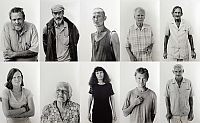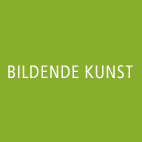6. Juni - 10. September 2015
Nach ihrem Erfolg 2010/11 in Südafrika ist die Ausstellung jetzt auch in Deutschland zu sehen.
get together mit den Künstlern am Freitag, 19. Juni um 19 Uhr
30 photos, black and white Baryt prints, 60x90 cm
sound scape of interview fragments and original
For
outsiders it is hard to believe that in South Africa with its history
of white supremacy Whites became impoverished or even had been poor for
generations. Already in the 1920s there were many "Poor Whites" and this
issue was politically addressed. To empower those at the expense to the
majority of the country was one of the principles of the Apartheid
regime until 1994, a task that failed to succeed. Today more than half a
million white people can’t feed themselves. This development has many
reasons. This problem is ignored however– ignored in a country, in which
most of the capital and wealth are owned by the white minority and most
of the black people are still living in poverty.
"Poor Whites"
or "white trash", as they are called not only in South Africa, live
outside of towns in squatter-camps. These places are named "Maranata" or
"Eagles Nest" – but no eagle would get lost in such forgotten place.
These people live in shacks and old caravans, clean water and
electricity are rare.
At two of those lost places Susanne
Schleyer and Michael J. Stephan improvised a studio and asked the
contributors to stand in front of a "white wall" to portrait them there.
Many of them are dressed in clothes they usually wear at church on
Sundays. The artists didn’t encourage them to present themselves in a
special pose or position.
The portraits include interviews. The
interviews were conducted together with the Afrikaans artist Stephan
Erasmus, who worked out his own interpretation of Afrikaaner identity,
about loss, about guilt and redemption and how Afrikaaners find their
role in a new South Africa.
In the interviews contributors were
asked questions about their lives, their living circumstances, their
wishes for their future. Notable: Even if they didn’t believe, that God
would prove them, they never felt responsible for the situation they are
in. On the contrary they called many reasons, why their situation was
so desperate – especially the "blacks" are constantly blamed for their
plight. They accused them not to offer them any help and forget
themselves the fact that the former political system of Apartheid
offered only little welfare for the majority of the South African
people. In the squatter-camps there aren’t any "poor blacks". In this
social landscape you are still discovering separation and intolerance.
Susanne
Schleyer: "We looked into their faces, which seem to be from another
time. We decided not to photograph them in the degrading misery and
chaos. They didn’t expect that, because all their life they had been
seen and portrayed like losers, like "White Trash". We took them out of
this context, which determines their life. We put them in front of the
"White Wall", because we didn’t want to abuse them, because we were
looking in their faces and in the pictures for something – and we found
what we all own: Proud and Dignity".
Indra Wussow (Curator): "As
curator of the show I was very much interested in showing social
transformation by scrutinizing one particular group of the South African
society. To bring the Afrikaans artist Stephan Erasmus and the German
artists Susanne Schleyer and Michael J. Stephan together meant to offer
two completely different perspectives of the topic, seen from the
inside of the society as well as from outsiders. The art show "Bitter
Fruit" gives evidence to the fact that the Freedom Charta is still a
mission for the new dispensation in South Africa and how many obstacles
and prejudices have to overcome on its way into being."

(c) S. Schleyer / Michael J. Stephan

